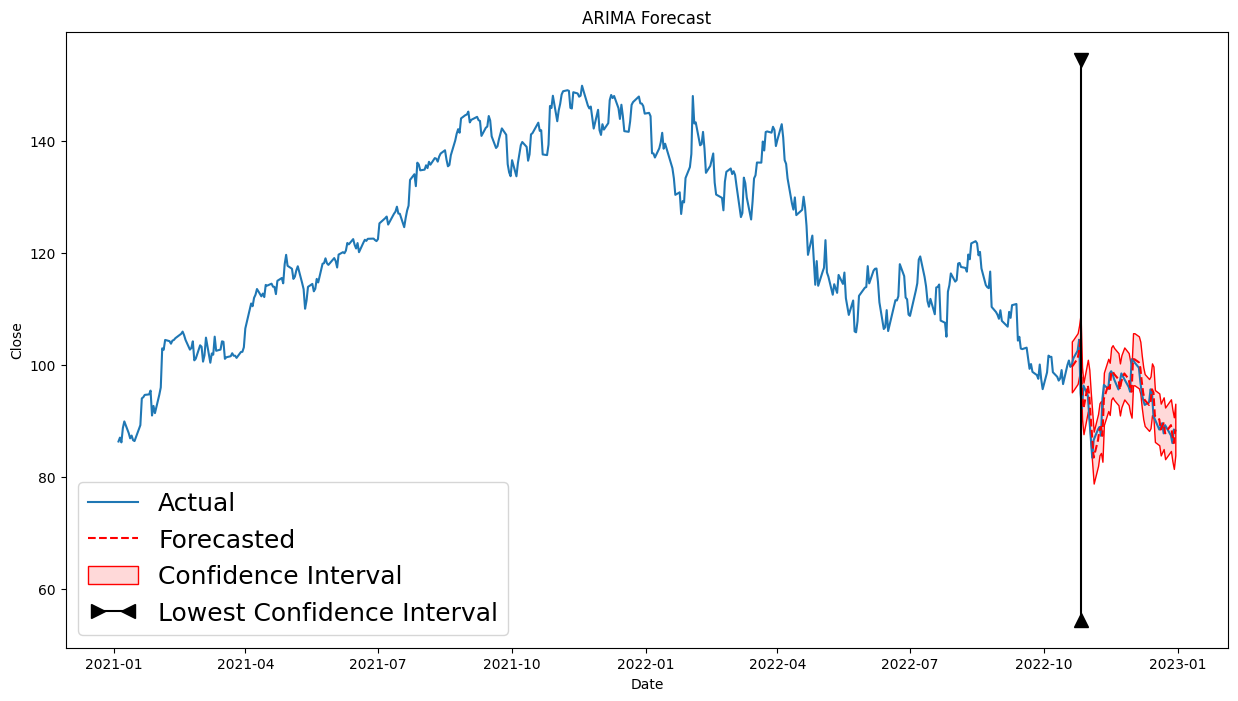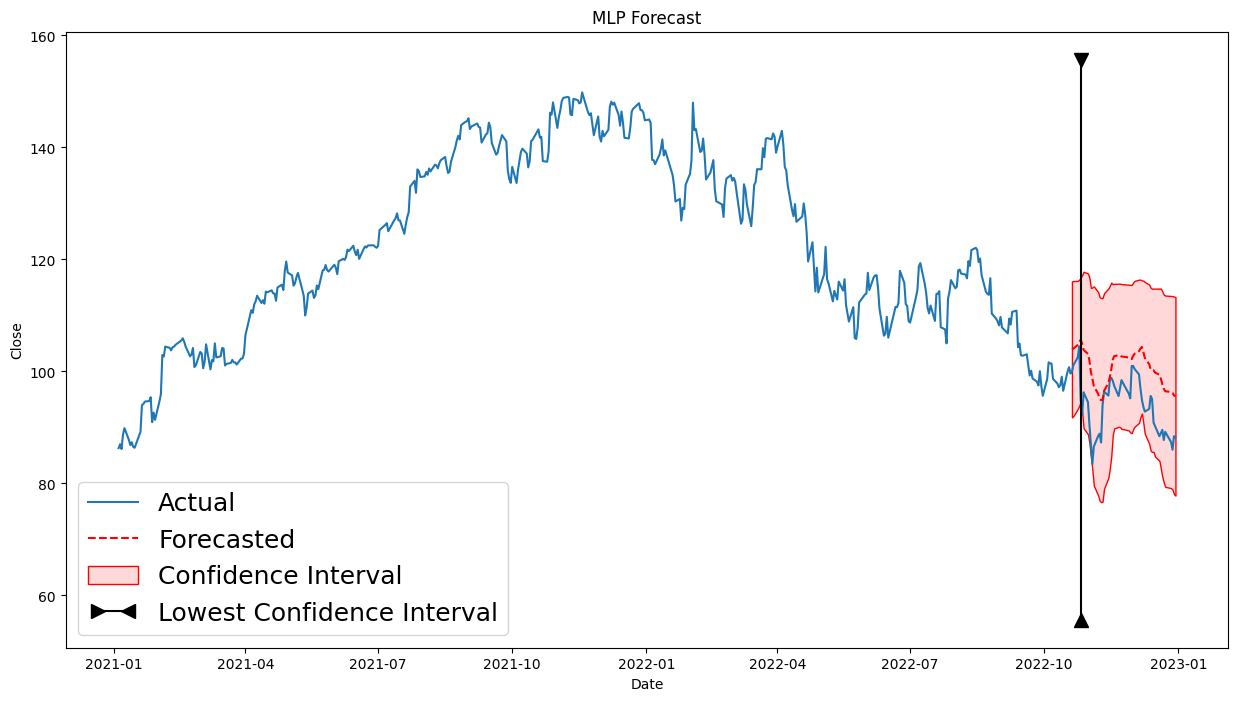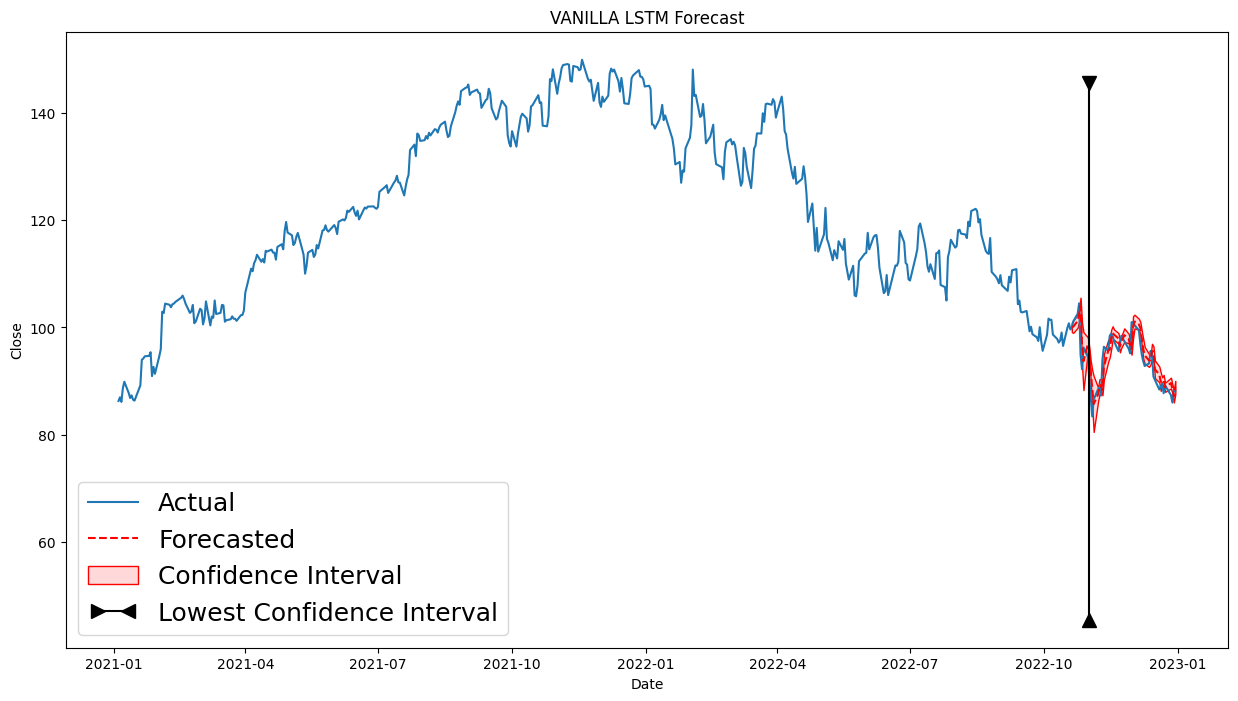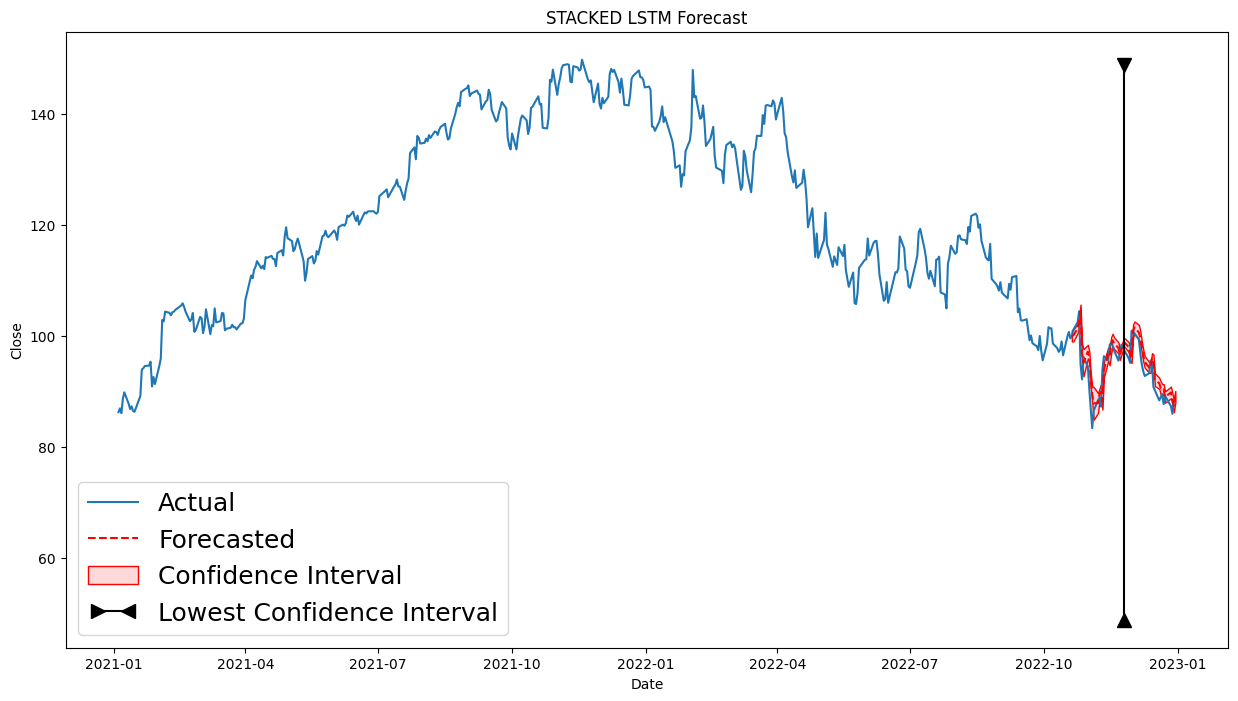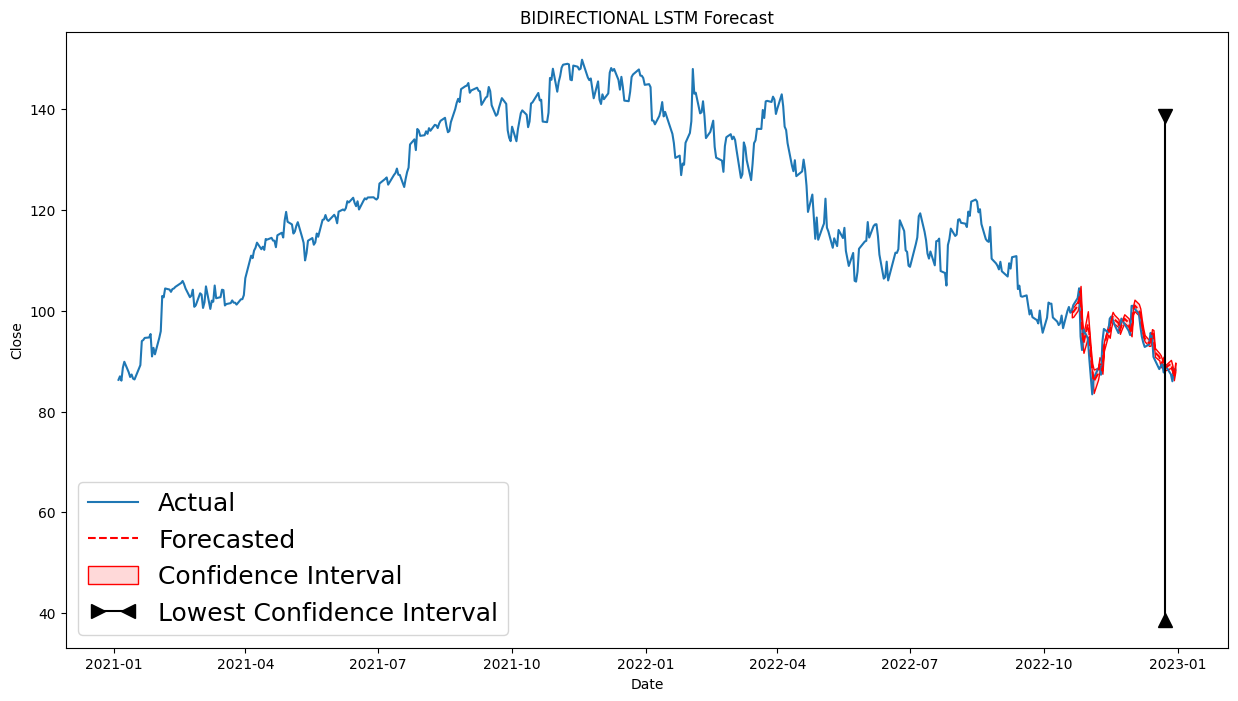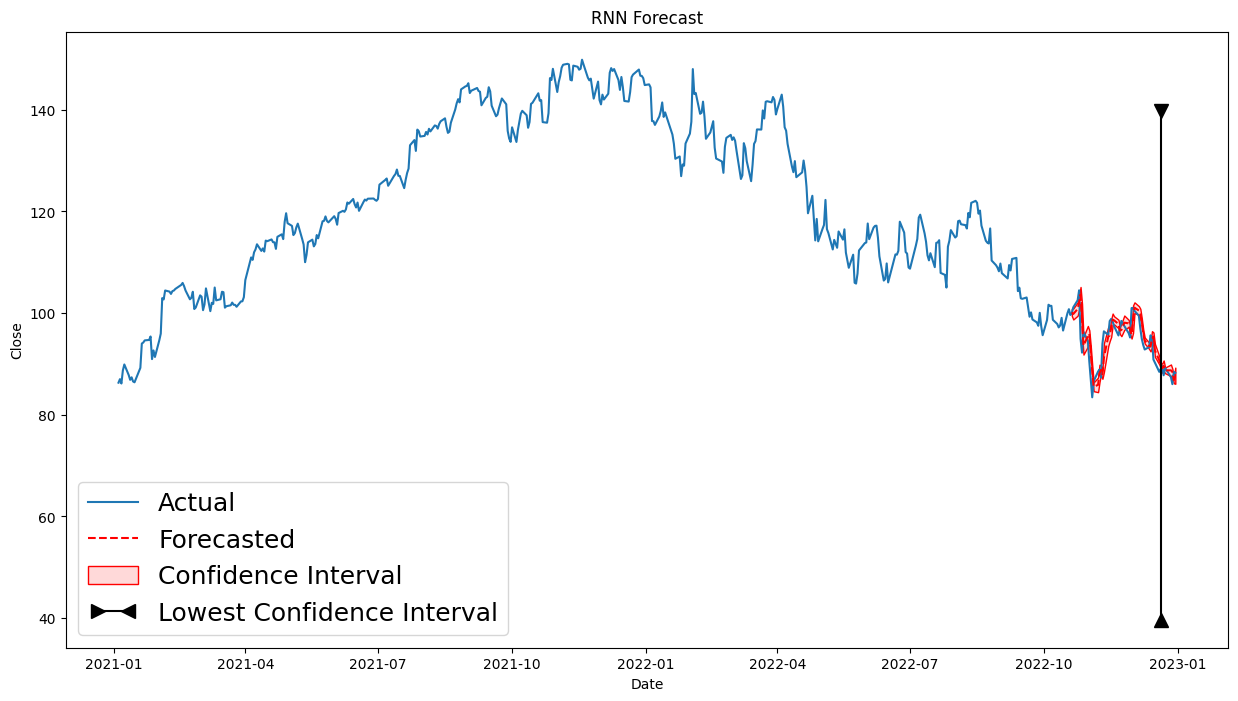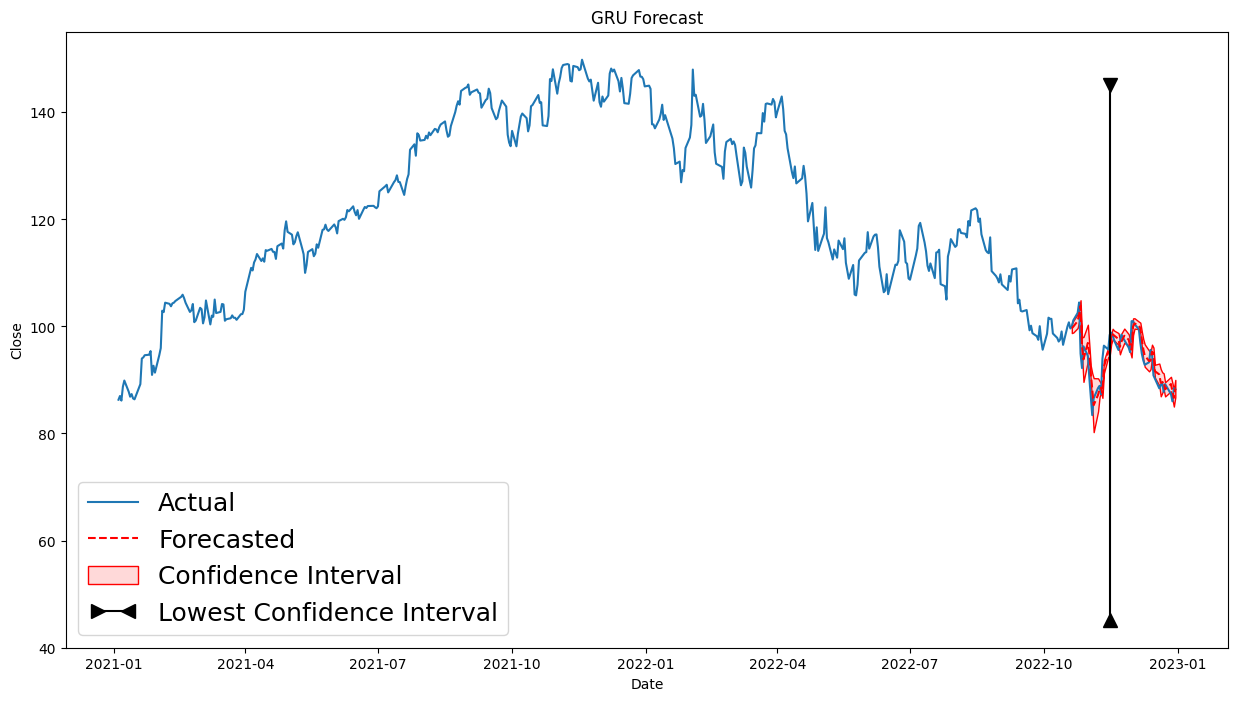LazyForecast is a Python library for performing univariate time series analysis using a lazy forecasting approach. This approach is designed to provide quick and simple forecasting models without requiring extensive configuration or parameter tuning.
Project description
LazyForecast
LazyForecast is a Python library for performing univariate time series analysis using a lazy forecasting approach. This approach is designed to provide quick and simple forecasting models without requiring extensive configuration or parameter tuning.
Table of Contents
Installation
You can install LazyForecast using pip:
pip install lazyforecast
Features
- LazyForecasting automatically selects the best model based on the characteristics of the input time series.
- It supports univariate time series analysis.
- LazyForecasting provides functions for data preprocessing, model training, forecasting, and evaluation.
- It includes various popular forecasting models such as Auto ARIMA, Vanilla LSTM, and RNN.
Usage
Here's an example of how to use the LazyForecast library to forecast stock prices using historical data:
import pandas as pd
import matplotlib.pyplot as plt
import numpy as np
import yfinance as yf
import LazyForecast as lf
# Set the number of periods and steps for forecasting
n_periods = 50
n_steps = 5
# Create an instance of LazyForecast
ts = lf.LazyForecast(n_periods=n_periods, n_steps=n_steps, n_members=5)
# Specify the start and end dates for the data
start_date = '2021-01-01'
end_date = '2022-12-31'
# Fetch the historical stock data for Google
df = yf.download('GOOGL', start=start_date, end=end_date)
# Reset the index of the DataFrame
df.reset_index(level=0, inplace=True)
# Fit the data to the LazyForecast model and obtain evaluation metrics, forecasts, and confidence intervals
eval_df, fc, confint = ts.fit(df, x_axis='Date', y_axis='Close')
# Print the evaluation metrics for each model
print(eval_df)
Output
Auto-Regressive Integrated Moving Average (ARIMA)
Multi-Layer Perceptron (MLP)
Vanilla Long Short-Term Memory (LSTM)
Stacked LSTM
Bi-directional LSTM
Recurrent Neural Network (RNN)
Gated Recurrent Unit (GRU)
Evaluation Table
| model | mda | rmse | mape | R2 | mae | corr |
|---|---|---|---|---|---|---|
| ARIMA | 0.55102 | 2.62852 | 0.0208377 | 0.72456 | 1.9532 | 0.863465 |
| GRU | 0.55102 | 2.6993 | 0.0216135 | 0.667912 | 2.03898 | 0.85146 |
| BIDIRECTIONAL LSTM | 0.55102 | 2.72504 | 0.0220456 | 0.639895 | 2.08601 | 0.851686 |
| VANILLA LSTM | 0.55102 | 2.79671 | 0.0225355 | 0.630066 | 2.13659 | 0.848691 |
| STACKED LSTM | 0.510204 | 2.90771 | 0.0233817 | 0.581736 | 2.22243 | 0.851591 |
| MLP | 0.510204 | 7.57871 | 0.0664394 | -4.6669 | 6.66732 | 0.698219 |
| RNN | 0.469388 | 2.96933 | 0.0240381 | 0.609076 | 2.27333 | 0.821808 |
Project details
Release history Release notifications | RSS feed
Download files
Download the file for your platform. If you're not sure which to choose, learn more about installing packages.
Source Distribution
Built Distribution
Hashes for lazyforecast-0.0.1-py3-none-any.whl
| Algorithm | Hash digest | |
|---|---|---|
| SHA256 | 41cdf026f8e3606402712da9c80a518b2a93e86bd7347d80f5b8e1afee3486e9 |
|
| MD5 | 02cea29f50390765333f20ab55dfea67 |
|
| BLAKE2b-256 | ccba476508dd31c5bf68625922a2ca116c2e937e6767f1d6c7f2a7f179743e4f |


